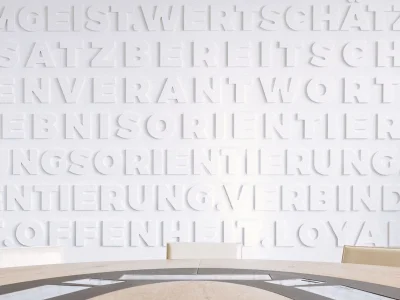ECTS
The European Credit Transfer System (ECTS) promotes the transparency and quality of study programmes and facilitates the recognition of formal, non-formal and informal achievements in studying. The system is used throughout Europe for the transfer and recognition of academic achievements (in the context of student mobility) and their accumulation (recognition of educational stages in the course of a university degree). It also provides information about the curriculum design and quality assurance of a study programme.
ECTS credits are calculated on the basis of students' workloads, i.e. the time students usually need to achieve a positive learning outcome (e.g. for lectures, seminar papers, research, exam preparation, laboratory work, internships, etc.). The workload for an academic year is between 1,500 and 1,800 hours, a credit represents a workload of 25 to 30 hours and an academic semester comprises 30 ECTS credits. This means that Erasmus students usually need to complete 30 ECTS credits for an academic semester abroad.
The transfer and accumulation of ECTS credits is supported by ECTS key documents (a study directory and course descriptions, a learning agreement and a transcript of records) and the Diploma Supplement.
ECTS can be used for the recognition of study achievements in vertical mobility (BA, MA and PhD) and for admission to further studies. However, it should be noted that the competent authorities have the final say in these matters.
Further information is available at:
Diploma Supplement
The Diploma Supplement is document provided in addition to the university degree certificate. It aims to improve the international transparency of higher education and to facilitate the recognition of academic and professional qualifications in the national and international context. The Diploma Supplement describes the completed studies in more detail (i.e. type, level, context, content and status) and mobility, such as a semester abroad or an internship abroad, is noted as an additional qualification.
In this way, it informs employers and educational institutions about the qualifications that a student has acquired. It supports students’ mobility and lifelong learning in addition to promoting an informed assessment of their qualifications.
However, it is not a substitute for a transcript of records or a CV, nor should it be considered a guarantee that a qualification will automatically be recognised.
The University of Applied Sciences Wiener Neustadt automatically issues a Diploma Supplement to all graduates free of charge, together with transcripts and final academic documents in German and English.
Grading distribution table

